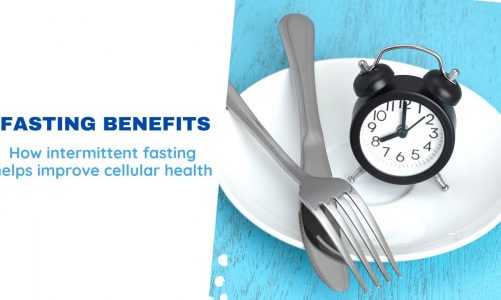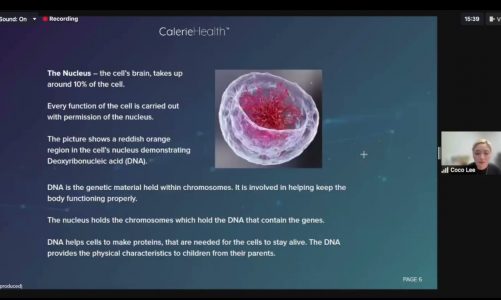A long-term clinical study from Denmark has shown that increased Nicotinamide Adenine Dinucleotide (NAD) levels and improved mitochondrial function results from NR supplementation in mice could not unfortunately be repeated in humans.
I hope you enjoy my content and find it interesting or informative, hopefully both; if so please consider supporting the channel by signing up to:
Patreon: https://bit.ly/3hhfjl5
Subscribestar: https://bit.ly/3psYo23
10% Discount Code – MYNMN
NMN 60 Capsules: https://bit.ly/3cup3FE
Trans-resveratrol 60 Capsules: https://bit.ly/2WOdIJL
TMG 60 Capsules: https://bit.ly/3enP36z
Berberine 366 Capsules: https://bit.ly/2SZFEcC
NMN & Resveratrol Capsules: https://bit.ly/2Lqmyba
Hyaluronic Acid 60 Capsules: https://bit.ly/33dUiCP
Fisetin 60 Capsules: https://bit.ly/32AiywX
Vitamin D3, K2 & Magnesium 60 Capsules: https://bit.ly/2FsAgLt
Quercetin 60 Capsules:
https://bit.ly/3kKVJyM
Biological Age Test Kit: https://bit.ly/3b1XinI
10% Discount Code – MYNMN
https://pubmed.ncbi.nlm.nih.gov/31710095/
https://www.ncbi.nlm.nih.gov/pmc/articles/PMC6509089/
https://www.ncbi.nlm.nih.gov/pmc/articles/PMC3951182/
https://www.ncbi.nlm.nih.gov/pmc/articles/PMC5088772/
NAD or Nicotinamide Adenine Dinucleotide to give it its full name is found in virtually all our living cells, NAD+ is essential for sustaining life. NAD levels decline drastically with age, creating an energy deficit that decreases the body’s ability to retain youthful functions. NAD is biologically unstable, which makes it unsuitable for oral supplementation. Fortunately, it is easy to restore your cellular NAD levels using NMN (Nicotinamide Mononucleotide) or NR (Nicotinamide Riboside), which converts to NAD when it is in the cell. To give you an idea how NAD+ declines with age; biological studies have shown that by age 50 a typical person may have only half the NAD+ they did in youth, by age 80, NAD+ (Nicotinamide Adenine Dinucleotide) levels drop to between 1% to 10% of those expressed in youth. A fascinating aspect of NAD+ is its dual role in protecting against factors that age us. This includes mitigating chemical stress, inflammation, DNA damage, and failing mitochondria, all conditions associated with aging. In other words, while a decline in NAD+ levels may negatively influence lifespan and Healthspan (health-span), so restoring NAD+ is increasingly being viewed as a scientific cutting-edge tool to promote longevity and a way to combat the diseases of aging too. A rigorous scientific review of NAD+ reveals that its longevity benefits arise from eight different, but interrelated, functions. In 2013 a scientific study; 2-year old mice were tested for muscle wastage, insulin resistance and inflammation, all are, on humans used as indicators of the aging process, they were then given NMN (Nicotinamide Mononucleotide) for 1 week. In all cases, after only 1 week the 2-year old mice were reflecting the expected findings of 6-month old mice in the areas of muscle wastage, insulin resistance and inflammation. In human terms that would be comparable to a 75-year old having the results you would expect from a 25-year old. In a later methodical study, in 2018, again on mice, Dr. David Sinclair’s team at the Harvard Medical School found that the aging of blood vessels had been reversed. The science showed that mice that were given NMN (Nicotinamide Mononucleotide) had restored blood vessel growth and had increased muscle endurance by up to 80%. NMN is the pre-cursor to NAD+ (Nicotinamide Adenine Dinucleotide), so what you may say? NAD+ is used to power out metabolism, at the simplest level, it turns our food into energy. By increasing NAD through NMN or NR (Nicotinamide Riboside) we can kick start those genes again and get them to slow down the aging process; maybe even reverse it. Supplementation with NMN (Nicotinamide Mononucleotide) and NR (Nicotinamide Riboside) has been shown to slow cellular aging in mice and improve many metabolic defects common to degenerative processes, including muscle wastage, insulin resistance and inflammation. Nicotinamide mononucleotide (“NMN”, “NAMN”, and “β-NMN”) is a nucleotide derived from ribose and nicotinamide. Like nicotinamide riboside, NMN is a derivative of niacin and humans have enzymes that can use NMN to generate nicotinamide adenine dinucleotide (NADH). In mice, NMN enters cells via the small intestines within 10 minutes converting to NAD+ through the Slc12a8 NMN transporter. Because NADH is a cofactor for processes inside mitochondria, for sirtuins, and for PARP, NMN has been studied in animal models as a potential neuroprotective and anti-aging agent. #nicotinamideriboside #NAD+ #NR DISCLAIMER: This description contains a discount code, which means that if you use the code, I will receive a small commission. Also, although they don’t actually pay me, DoNotAge.org has sent me free products by way of sponsorship.
source



